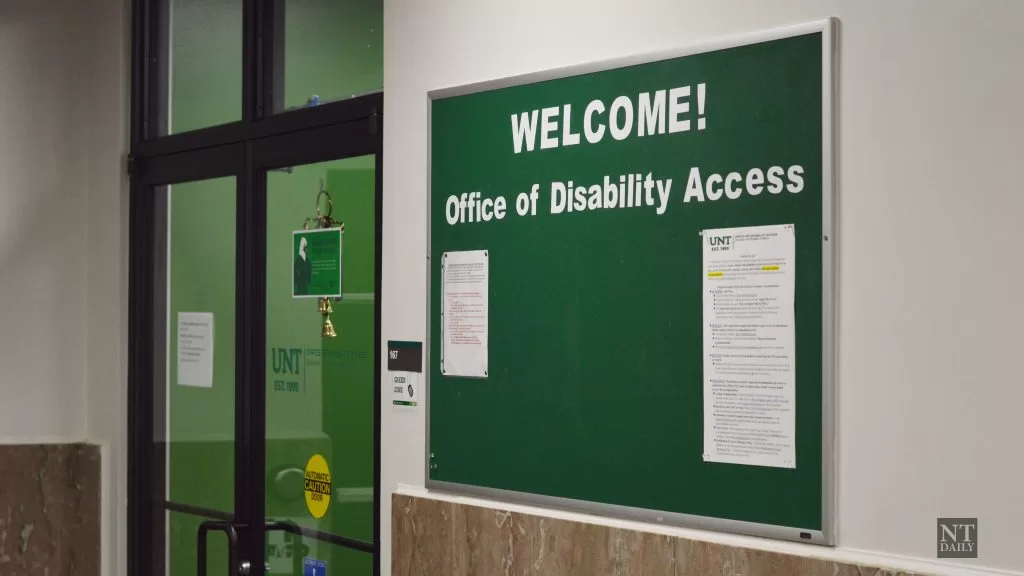As the university continues to develop ways to ensure accessibility among the COVID-19 related changes in the upcoming semester, a disability advocate said some students are left wondering if it will be enough.
The university first addressed fall accessibility concerns during the June 22 Reopening and Safety town hall.
“I know we are working diligently with a couple of faculty members that have reached out to help provide us with some guidance [on accessibility],” Associate Vice President of Administrative Services Brandi Renton said. “We’ve also been in contact with the [Office of Disability Access], as well as Human Resources, to talk through what are some other options, some things we could consider.”
On-campus efforts include creating new campus signage with enough contrast of colors to make them easier to read for visually impaired students.
The university will also order specific personal protective equipment, like clear masks, to support hearing-impaired students in their interactions with faculty, staff and other students.
“ODA will reach out to each instructor teaching in-person about any students that need accommodations,” Associate Director of Reputation Management Leigh Anne Gullett said.
Regarding online content, the university worked with a visually impaired faculty member to ensure the accessibility of The Bridge COVID-19 training course.
All remote courses offered in the fall must pass an accessibility review by the Center for Learning Experimentation, Application and Research, the university’s center for online learning. CLEAR will also provide consultations and training for faculty on designing remote courses to be accessible.
“I would consider the list [of accessibility changes] to be fluid as we continue to evolve offerings and capabilities,” Gullett said.
Devon West, the president of the Blind and Visually Impaired Alliance, offered his perspective as both a disabled student and a digital accessibility specialist working for the university.
He told the North Texas Daily not all professors are checking their classes’ accessibility with CLEAR. Others have waited until mid-summer to submit their education plans to the center, which West said is currently flooded with the workload of over a thousand courses.
“I think you’re going to see a lot of frustration from disabled students on campus this fall,” West said.
West said he has spoken with other disabled students, who shared several concerns with him. West said physically impaired students are hesitant to put themselves at risk while traveling, and in some cases on public transit, to campus for classes offered only in-person.
For hearing-impaired students, West said they worry they may not have enough ASL translators because of student volunteers choosing to stay off-campus.
West also said visually impaired students are unsure how social distancing will affect having a partner sit next to them in large lecture halls to describe slides and assist with the technology used in-class like iClicker.
West said he believes every class should be optionally remote, especially those which are mandated by a degree plan, and the university needs to be tougher on publishers and third-party vendors utilized in the classroom that do not have adequate accessibility. He also said he supports a shuttle service “for those taking social distancing very seriously.”
“Unfortunately what has happened is the conversation around disability and accessibility on campus hasn’t been had,” West said, noting the university has not reached out to the BVIA or other student-lead accessibility advocacy groups he is in contact with.
Featured image: The university will continue to develop more ways to ensure students have accessibility on-campus during the COVID-19 pandemic. Clear signage and PPE, clear masks to help hearing-impaired students, are included in the university’s plans. Image by Ricardo Vazquez Garcia

